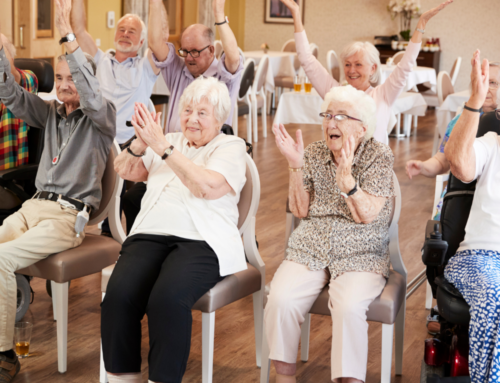Share This Story!
Music Therapy Is Not Just Music
Music therapy is more than listening to music, although that is a component. Writing and making music are additional parts of music therapy (MT). A therapist specializing in MT also has training in communication, pain management, and cognitive disorders. Depending on the goals, the therapist may use a variety of music styles and activities.
Music gets you moving
Older adults often tend to become less active. That decrease in movement can result in weakened muscles, impaired balance, and lowered endurance. Music therapy motivates people to move. This therapy protocol is even used to assist stroke patients to walk again through rhythmic motion activities.
Remain calm and carry on with music
Elderly adults often feel anxious about whether worrying about health, finances, or loss of independence. Music with a slower tempo and volume has been shown to reduce heart rate and blood pressure. Some studies have even shown that listening to music can help reduce stress hormones and release endorphins. These happy hormones can elevate moods, reduce depression and anxiety and contribute to happier thoughts in general.
Music can bring a smile
Studies have shown music therapy to be a positive intervention for depression and other psychological diagnoses. Music can lift moods, increase self-esteem, and even improve the overall quality of life. MT for elderly patients with dementia has contributed to positive progression in behavioral and emotional function. Music brings about a pleasurable response in people and elderly adults are no exception. That pleasurable response can improve attention, memory, and intellectual performance.
Staying connected
Many elderly adults become socially isolated, but music therapy can help bridge that gap. Music is sometimes recognized as another language. People with the same taste in music can relate to one another and that shared interest spurs interaction. Music has also been shown to improve communication skills. While individual MT can assist in this area, group music therapy is greatly beneficial in building social skills.
And the music plays on
Music has been said to soothe the savage beast. That may be the case because MT certainly has many positive effects. Music can relieve boredom, motivate movement, bring back good memories, and promote social interaction. Elderly adults can benefit from those and the many other effects of MT and should be considered for MT intervention.





